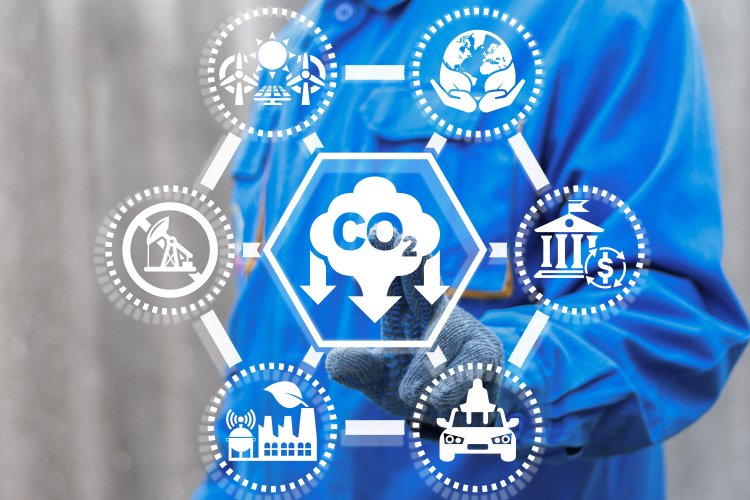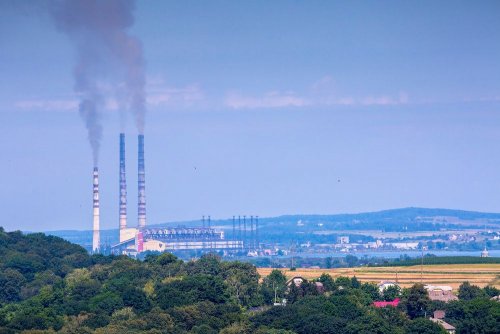The adoption of the draft law No. 11355 “On Integrated Prevention and Control of Industrial Pollution” by the Verkhovna Rada of Ukraine on July 16 has sparked a significant amount of discussion among experts and activists. Along with the enthusiastic feedback that the long period of preparation of the law on industrial pollution is finally over, there were also critical comments and warnings from environmentalists and industrialists.
EcoPolitic analyzed the main risks and problems of the draft law No. 11355, which was actually adopted by MPs only on the second attempt.
We have carefully collected and analyzed the opinions of experts, which they published on social media, and also personally talked to some of them. As a result, we have 3 critical reservations about the law on eco-modernization of Ukrainian enterprises:
1. Unreal terms stipulated by the document for eco-modernization of enterprises
We will remind that the draft law on industrial pollution provides 7 years for the implementation of the best available technologies and management methods (BAT) at existing enterprises, as well as a 10-year period for decommissioning outdated installations.
At the end of May, the European Business Association turned to to the Ukrainian people's representatives with a request to postpone the implementation of European environmental legislation in the field of industrial pollution.
The EBA proposed to cancel the time limit of 7 years for the implementation of BAT at existing enterprises, as well as to increase the corresponding possible deadline for decommissioning installations to 15 years.
They justified their position by the fact that when establishing the terms of the transition to new environmental standards, it is necessary to take into account both the financial ability of businesses to modernize production during the war without financial assistance from the state and the EU, as well as the need to solve social and economic problems that may arise when city-forming enterprises are stopped.
General Director of the "Center for Ecology and Development of New Technologies" Vladyslav Antipov aptly reminds:
"Even in stable and prosperous Europe, the transition to BAT was carried out for more than 20 years. In some countries, it has not even finished yet. Therefore, for certain Ukrainian enterprises, a period of 7 years does not seem realistic at the moment."
Chairman of the Council of the Federation of Employers of Ukraine Dmytro Oliynyk in general named draft law No. 11355 "time bomb under Ukrainian factories". He emphasized that this law could have been "100% supported by business and local communities, if not for one significant BUT – for the ecological modernization of Ukrainian industry, the People's Deputies provided much less time than is available even in the EU."
"This is primarily about Part 5 of Article 29 of the new law. It gives the so-called "permit to die" – it allows you to work at the installation without the need for its modernization for a period of up to 10 years, but with the obligation to simply close the installation afterwards", Dmytro Oliynyk added.
The expert warned that "whole branches of the Ukrainian economy, which in 10 years will not be able to build a new production from scratch that will meet EU standards, will have to close."
"Once again: in the conditions of war, absolute uncertainty and the absence of any funding, businesses are offered to undertake a 10-year commitment to completely rebuild the units. Or – to close it," the chairman of the FRU Council was indignant.
2. Insane economic pressure on enterprises
One of the main remarks of the experts, as can be seen from the previous comments, is that domestic enterprises will be required to carry out a significant amount of preparatory actions and investments to obtain an integrated environmental permit by October 2028. Such necessity can become a serious burden for business, especially in wartime, when financial resources are limited and economic stability is in question. According to experts, such a requirement may lead to the closure of some enterprises and the collapse of the permit system.
Yes, Dmytro Oliynyk is sure that apart from slogans and framework norms, the draft law does not have any specifics at all.
"It is not clear where, under what conditions and when Ukrainian business will be able to get access to financing – for example, in the form of loans, state support or grants necessary for the construction of new modern facilities," he says.
EcoPolitic asked the experts of the Ministry of Environment what considerations there are regarding possible significant costs for the implementation of the best available technologies and methods of management of Ukrainian enterprises. The agency noted that "the bill foresees long periods before the new rules come into force, which will allow many enterprises to implement new technologies within the framework of normal cycles of modernization of their technical equipment."
The ministry also spoke about the possibility of providing benefits for the import of new equipment, equipment, components for them and materials that are not produced in Ukraine, in accordance with the requirements of tax and customs legislation, for implementation by operators of BAT installations, provided for by the draft law.
The Ministry of Environment also promised to further develop the concept of a state target program to support enterprises implementing the best available technologies and management methods, as well as to continue working on finding opportunities to attract other resources to make new technologies available.
At the same time, Olha Semkiv, director of the sustainable development project of ArcelorMittal Kryvyi Rih PJSC, in a comment for EcoPolitic, noted that one of the main risks in carrying out industrial pollution reform is financial constraints, in particular, the need for significant amounts of capital investment within a fairly short period of time.
Vladyslav Antipov agrees with her:
"The financing of large-scale environmental projects, which must be implemented for the transition to NDTM, remains a big issue. Currently, many Ukrainian industries are operating either on the verge of profitability, or even "in the red". Enterprises do not have their own funds for such large-scale investments, and it is simply impossible to attract foreign financing for a plant over which rockets fly every day."
The expert noted that only for the mining and metallurgical complex, the transition to BAT is estimated at $5 to $10 billion.
3. Inconsistency with the realities of martial law
Experts state that the draft law absolutely does not take into account possible deadlines for the termination of martial law in Ukraine, which endangers the implementation of its norms within the established period. They suggest delaying the law's entry into force until martial law ends, since no one can predict when that will happen.
The president of the Association of Environmental Professionals, Lyudmila Tsyganok, on behalf of all PAEW experts, expressed her concern about the fact that clear deadlines were included in the text of draft law No. 11355 without taking into account the amendments for the end of the war.
"Perhaps our people's deputies know when the war will end, but it looks quite strange. That is, we close our eyes to the whole situation that is around, and it looks quite detached from reality," she said.
Olha Semkiv noted that constant shelling of infrastructure and industrial enterprises also poses a serious threat to the eco-modernization of enterprises and the implementation of the provisions of the new law on industrial pollution:
"After all, for strategic planning, which is a mandatory element of the development of supporting documents for obtaining an integrated permit, the lack of an opportunity to plan for the long term can play a critical role in the implementation of the provisions of the Law," she is sure.
Dmytro Oliynyk stated: "It is also unclear how to conduct this construction – during military operations, power outages and its insane cost, as well as daily "arrivals" at production sites."
We have listed only 3 main reservations regarding the implementation of the new European integration draft law No. 11355 "On integrated prevention and control of industrial pollution", which we heard from all the experts we talked to. But there are still a number of risk factors that can have a very tangible impact on the implementation of industrial pollution reform in Ukraine. EcoPolitics will tell about them in the next article a little later.
As EcoPolitic wrote, that July 16 Verkhovna Rada approved draft Law No. 11355 "On integrated prevention and control of industrial pollution". 256 people's representatives voted "for".





